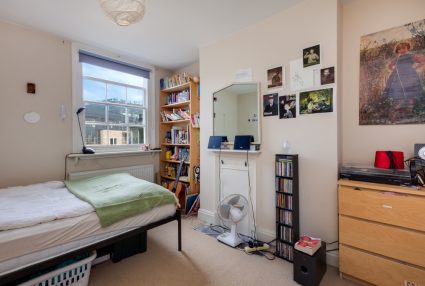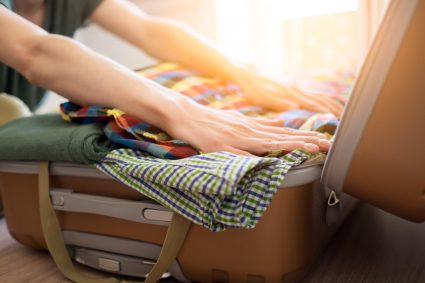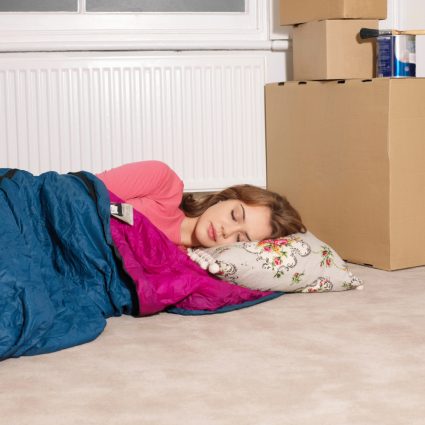Starting your studies and moving into university accommodation is an exciting time, and as cliché as it may seem, it marks the beginning of your journey through higher education. With so much to prepare and pack, it’s easy to get concerned about leaving anything behind. And since there is usually a lot to do on move-in day, the best bet is always to start planning on time.
This guide will offer practical move-in day tips to help you prepare for the day. Make sure you check out this advice before moving into your university to ensure the process is as stress-free as possible.
1. Create a detailed checklist
The idea of packing your entire life into a box can be overwhelming, so you will most likely keep looking for any excuse to procrastinate and do it later. However, it would be best to start packing little items here and there instead of waiting until the last minute. You can start by creating a moving day checklist at your convenient time. Making a list is an excellent approach to organise your thoughts. If you’re stuck, consider maintaining a log of everything you use daily for a week. Doing so would help you to easily recall the odd things that can be easily forgotten when packing.

2. Check what your accommodation provides for students
Before you start packing or buying new items, you should check what items your new student home supplies you with (such as desk lighting, a paper bin, an iron, and so on). Packing items that the property already provides would be a waste of space and effort. For example, if you learn that a lamp and a bin will be given to you when moving into a new apartment, you should not bother to bring your own.
It might be best if you also deferred buying kitchen supplies until you’ve moved into your new space. Look at what your flatmates are bringing in first, and see if you can work out a deal with them on whether or not you may purchase or share certain products to save some money. If your kitchen is being used by six people, you probably won’t need to have six frying pans and six kettles in there.

3. Pack “lightly” and label your boxes appropriately
To pack “lightly” does not always suggest bringing fewer things ― though that is always a good idea ― but rather packing so that the luggage, boxes, or bags you have packed your belongings in may still be easily lifted or carried. Carrying large boxes up four flights of stairs is a herculean task. Consequently, it would be best to pack only what you can carry. Making numerous trips with smaller boxes is easier than struggling with a few heavier ones.
Labelling the boxes you use and packing them “strategically” is also very beneficial. Consider separating boxes for kitchen, bedroom, and bathroom items to make unpacking faster and easier.

4. Sort out your drugs and medical supplies
Do you take medicine routinely to address any medical conditions (such as asthma, diabetes, epilepsy, or another illness)? If yes, consider packing enough supplies of medications that will get you through until you can return home or make an appointment with a primary care physician in the region around your school. You may feel more at ease sharing your worries with the same doctor if you’ve been seeing them for a time and they’re familiar with your medical history. But within the first few weeks of moving into school, you should ensure you have ample supplies of your medications.

5. Arrive early and quickly say your goodbyes
It is in your best interest to arrive early on your move-in day. It would be best if you had your parents assist you in transferring your belongings into your room as soon as they come so that you may say your goodbyes and settle down as soon as possible. After your parents have left, it will be much easier for your flatmates to chat with you. This is simply because you are generally more approachable when you are alone than when you are in the company of your parents.
Also, arriving early allows you to settle in, look about the apartment, and unpack before the rest of the flatmates arrive. Make the most of the situation by claiming a decent kitchen cabinet or restroom counter space before anybody else comes.

6. Make your bed as soon as you arrive
While it is preferred to unpack as soon as possible, this may not always be practical. If you want to make the most of your time with your new flatmates, you should immediately join their scheduled activities, chats, and local exploration of the surrounding environment.
However, you’ll want to avoid coming home after a long day out to find your space in a mess and having no clue where your pyjamas or duvet are. As a result, the best thing to do is to make your bed as soon as you enter the dorm. Even if you don’t unpack any other boxes, you may return to your house at night and sleep on a well-arranged bed. So when packing, ensure that your bed sheets and duvet are packed nearby so you can readily get them if you need to sleep before unpacking.

7. Take time to get to know your new flat mates
Even though you might be tempted to spend the first few days after moving in alone in your room, trying to get to know and spend time with your new flatmates is important. If you want to discover more about each other, try to schedule a first night out together. Making an effort to get along with the individuals you will be living with at university is essential since you will be spending a lot of time with them, whether or not they become your closest friends throughout your time there. Investing in a door stopper is a wise decision to ensure that your door remains propped open and creates a welcoming environment for anyone looking to come in for a little fun chat.

Hopefully, these tips are helpful to you and make your moving day less stressful. Best of luck in your studies, and have a good time at the university!
If you’re still looking for accommodation, don’t waste any more time, as the semester is starting very soon! On Student.com you can find thousands of student accommodation options in several hundred cities across the world.



